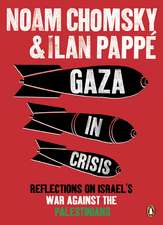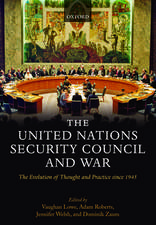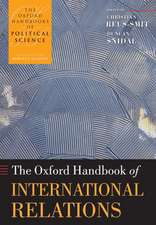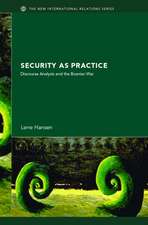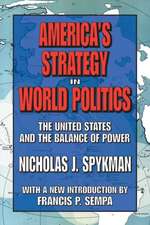Fearful Symmetry – India–Pakistan Crises in the Shadow of Nuclear Weapons: Fearful Symmetry
Autor Sumit Ganguly, Devin T. Hagertyen Limba Engleză Paperback – 26 iun 2006
Nuclear war was avoided despite bitter mistrust, everyday tensions, an intractable political conflict over Kashmir, three wars, and the steady refinement of each side's nuclear capabilities. Sumit Ganguly and Devin T. Hagerty carefully analyze each crisis, reviewing the Indian and Pakistani domestic political systems and key decisions during the relevant period.
This lucid and comprehensive study of the two nations' crisis behavior in the nuclear age is the first work on Indo-Pakistani relations to take systematic account of the role played by the United States in South Asia's security dynamics over the past two decades in the context of unipolarization, and formulates a blueprint for American policy toward a more positive and productive India-Pakistan relationship.
| Toate formatele și edițiile | Preț | Express |
|---|---|---|
| Paperback (1) | 225.87 lei 6-8 săpt. | |
| MV – University of Washington Press – 26 iun 2006 | 225.87 lei 6-8 săpt. | |
| Hardback (1) | 644.88 lei 6-8 săpt. | |
| MV – University of Washington Press – 15 iul 2015 | 644.88 lei 6-8 săpt. |
Preț: 225.87 lei
Nou
Puncte Express: 339
Preț estimativ în valută:
43.22€ • 46.22$ • 36.04£
43.22€ • 46.22$ • 36.04£
Carte tipărită la comandă
Livrare economică 17 aprilie-01 mai
Preluare comenzi: 021 569.72.76
Specificații
ISBN-13: 9780295986357
ISBN-10: 0295986352
Pagini: 234
Dimensiuni: 153 x 228 x 17 mm
Greutate: 0.37 kg
Editura: MV – University of Washington Press
Seria Fearful Symmetry
Locul publicării:United States
ISBN-10: 0295986352
Pagini: 234
Dimensiuni: 153 x 228 x 17 mm
Greutate: 0.37 kg
Editura: MV – University of Washington Press
Seria Fearful Symmetry
Locul publicării:United States
Recenzii
A timely review of how India and Pakistan have several times nearly allowed their grievances to lead to war and how, each time, they managed to dodge disaster. Steve Coll, Pulitzer Prizewinning author of Ghost WarsExplains a great deal about . . . important events, many of them not well known, and about international rivalry in general. This is an important and informative study. Robert Jervis, Columbia UniversityThis book asks an important question: Why have India and Pakistan not fought a major war in the past two decade? It gives a crisp answer: nuclear weapons. Kenneth Waltz, author of A Theory of International Politics" . . this is the first systemic, theoretically informed study of its kind of Indian and Pakistani crisis behaviour during South Asia's nuclear era. . . . a book that makes a valuable contribution ot the scholarly literature on nuclear deterrence as well as South Asian politics."--ASIAN AFFAIRS, March 2008
Notă biografică
Cuprins
Preface
1. Introduction
2. Wars without End?
3. 1984: India, Pakistan, and Preventive War Fears
4. Threat Perceptions, Military Modernization, and a Crisis
5. The 1990 Kashmir Crisis
6. Out of the Closet: The 1998 Nuclear Tests Crisis
7. The Road to Kargil
8. The 2001-2 Indo-Pakistani Crisis: Exposing the Limits of Coercive Diplomacy
9. Lessons, Implications, and Policy Suggestions
Index
Descriere
This book asks an important question: Why have India and Pakistan not fought a major war in the past two decade? It gives a crisp answer: nuclear weapons.




